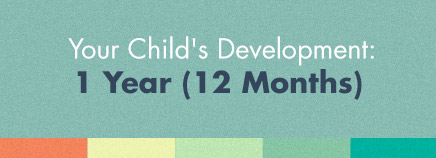
Your little one is now a toddler — and with this stage comes newfound freedom. If your toddler isn’t walking yet, he or she will be soon. Walking offers chances for exploring areas that were previously out of reach, and for practicing independence.
Doctors use certain milestones to tell if a toddler is developing as expected. There’s a wide range of what’s considered normal, so some children gain skills earlier or later than others. Toddlers who were born prematurely reach milestones later. Always talk with your doctor about your child’s progress if you have questions or concerns.
Here are some things your toddler might be doing:
Communication and Language Skills
- says “mama” and “dada” (specific to parents), plus one or two other words
- waves goodbye
- points to objects
- babbles with inflections that mimic normal speech
- understands simple questions: “Where is your nose?” or “What sound does a cow make?”
Movement and Physical Development
- bangs together cubes or blocks held in both hands
- stands alone
- walks with one hand held and possibly even walks alone
- can stack two blocks
- precisely picks up objects with thumb and forefinger
- during mealtime, uses hands to bring small pieces of food to the mouth
Social and Emotional Development
- enjoys peekaboo, pat-a-cake, and other social games
- likes being read to and looking at picture books
- cries when you leave the room
- feels proud when he or she gains a new skill like standing, walking, etc.
Cognitive Skills (Thinking and Learning)
- follows one-step commands (such as, “Please give me the ball.”)
- watches and imitates older kids and adults
- repeat behaviors that produce a desired effect, such as dropping a toy over a ledge so that you can pick it up
- will look at a book and turn the pages
When to Talk to Your Doctor
Every child develops at his or her own pace, but certain signs could indicate a delay in development. Talk to your doctor if your child shows any of these signs:
- walks with a limp or uneven stride
- when falling, falls forward instead of backward
- cannot pick up a small object (like a raisin) and does not feed himself or herself
- does not point at objects
- does not babble with consonant sounds (“ba, da, ga”)
Also, if you ever notice that your child has lost skills he or she once had or shows weakness on one side of the body, tell your doctor.

